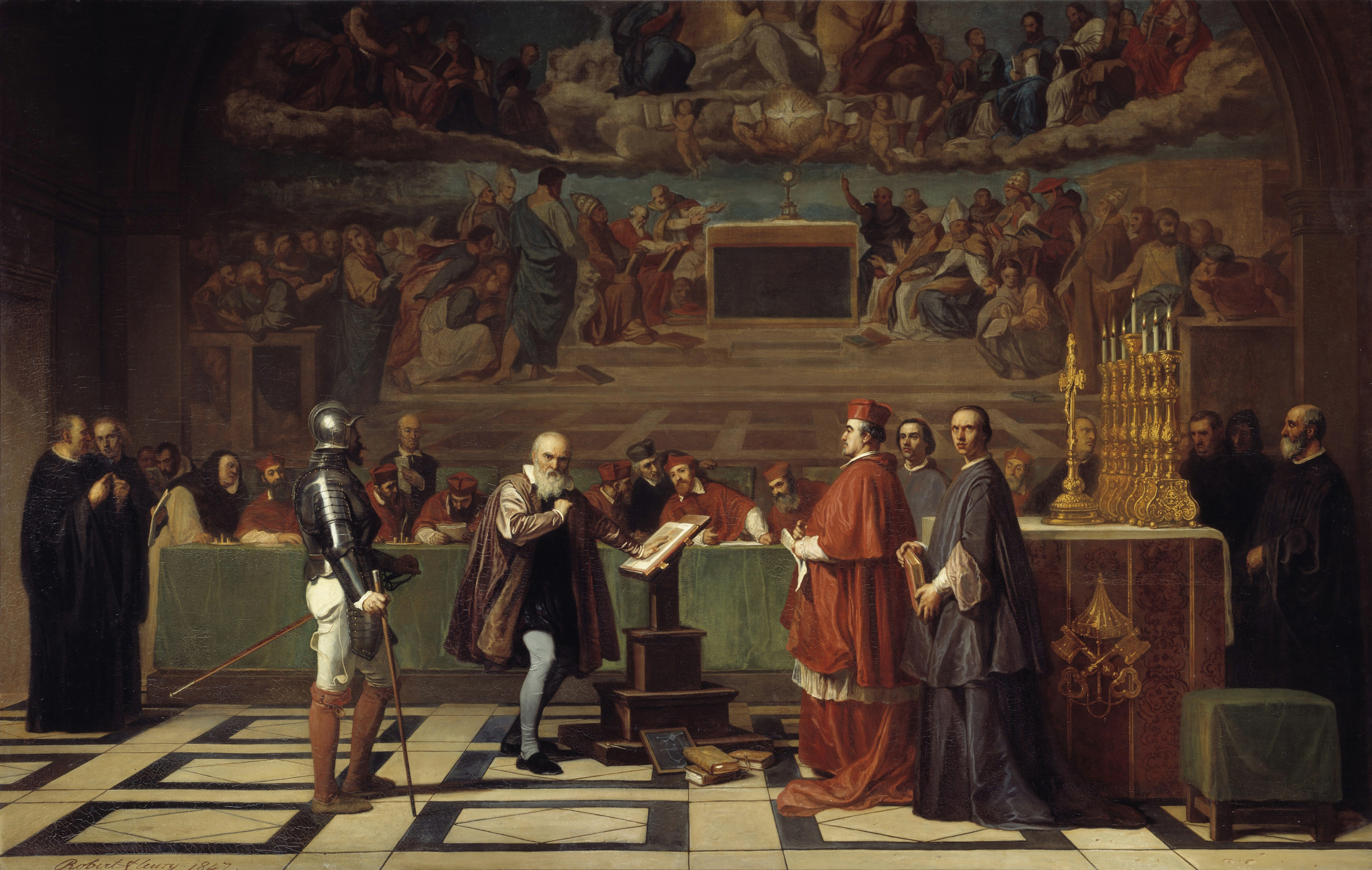
Galileo affair
Pisa, Province of Pisa, ItalyThe Galileo affair (Italian: il processo a Galileo Galilei) began around 1610 and culminated with the trial and condemnation of Galileo Galilei by the Roman Catholic Inquisition in 1633. Galileo was prosecuted for his support of heliocentrism, the astronomical model in which the Earth and planets revolve around the Sun at the centre of the universe.
In 1610, Galileo published his Sidereus Nuncius (Starry Messenger), describing the surprising observations that he had made with the new telescope, among them, the Galilean moons of Jupiter. With these observations and additional observations that followed, such as the phases of Venus, he promoted the heliocentric theory of Nicolaus Copernicus published in De revolutionibus orbium coelestium in 1543. Galileo's discoveries were met with opposition within the Catholic Church, and in 1616 the Inquisition declared heliocentrism to be "formally heretical." Galileo went on to propose a theory of tides in 1616, and of comets in 1619; he argued that the tides were evidence for the motion of the Earth.
In 1632 Galileo published his Dialogue Concerning the Two Chief World Systems, which defended heliocentrism, and was immensely popular. Responding to mounting controversy over theology, astronomy and philosophy, the Roman Inquisition tried Galileo in 1633, found him "vehemently suspect of heresy", and sentenced him to house arrest where he remained until his death in 1642. At that point, heliocentric books were banned and Galileo was ordered to abstain from holding, teaching or defending heliocentric ideas after the trial. Originally Pope Urban VIII had been a patron to Galileo and had given him permission to publish on the Copernican theory as long as he treated it as a hypothesis, but after the publication in 1632, the patronage was broken off.
